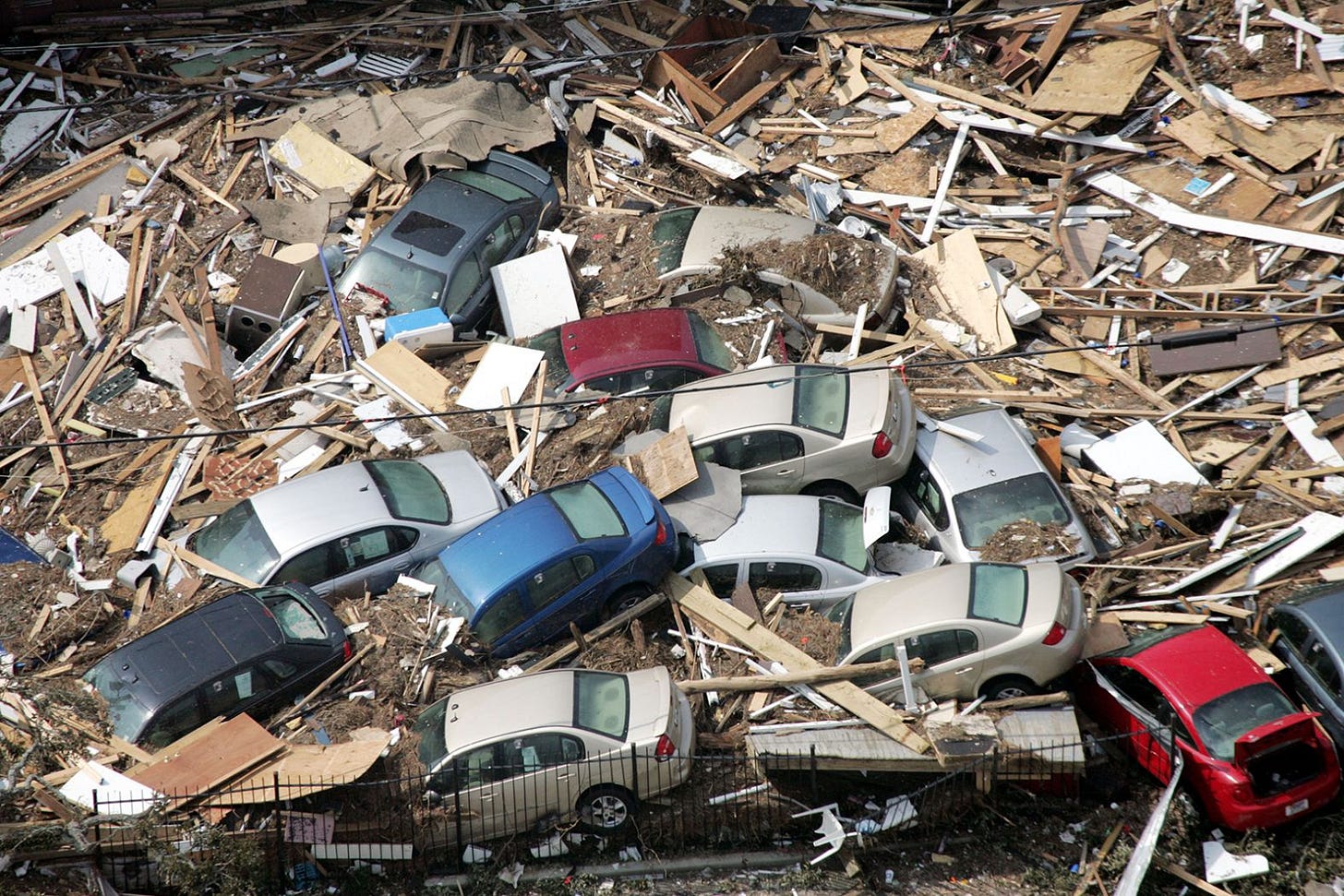What we got wrong about Noah and the Flood
God is not punishing us with suffering. God is with us in our suffering.
Public Theology is based on the work of Zach W. Lambert, Pastor of Restore, an inclusive church in Austin, Texas. He and his wife, Amy Lambert, contribute to and moderate this account. Zach’s first book, Better Ways to Read the Bible, is now available wherever books are sold.
All of the content available at Public Theology is for those who identify as Christian, as well as those who might be interested in learning about a more inclusive, kind, thoughtful Christianity. To receive new posts and support the work, consider becoming a free or paid subscriber.
We are happy to cover subscription costs for anyone who needs it but can’t afford it at this time. If you would like to join the Public Theology community and gain access to our paid subscriber content (which we keep behind a paywall for the privacy and connection of our community) but cannot afford to do so, please message Amy Lambert directly.
We’re glad you’re here.
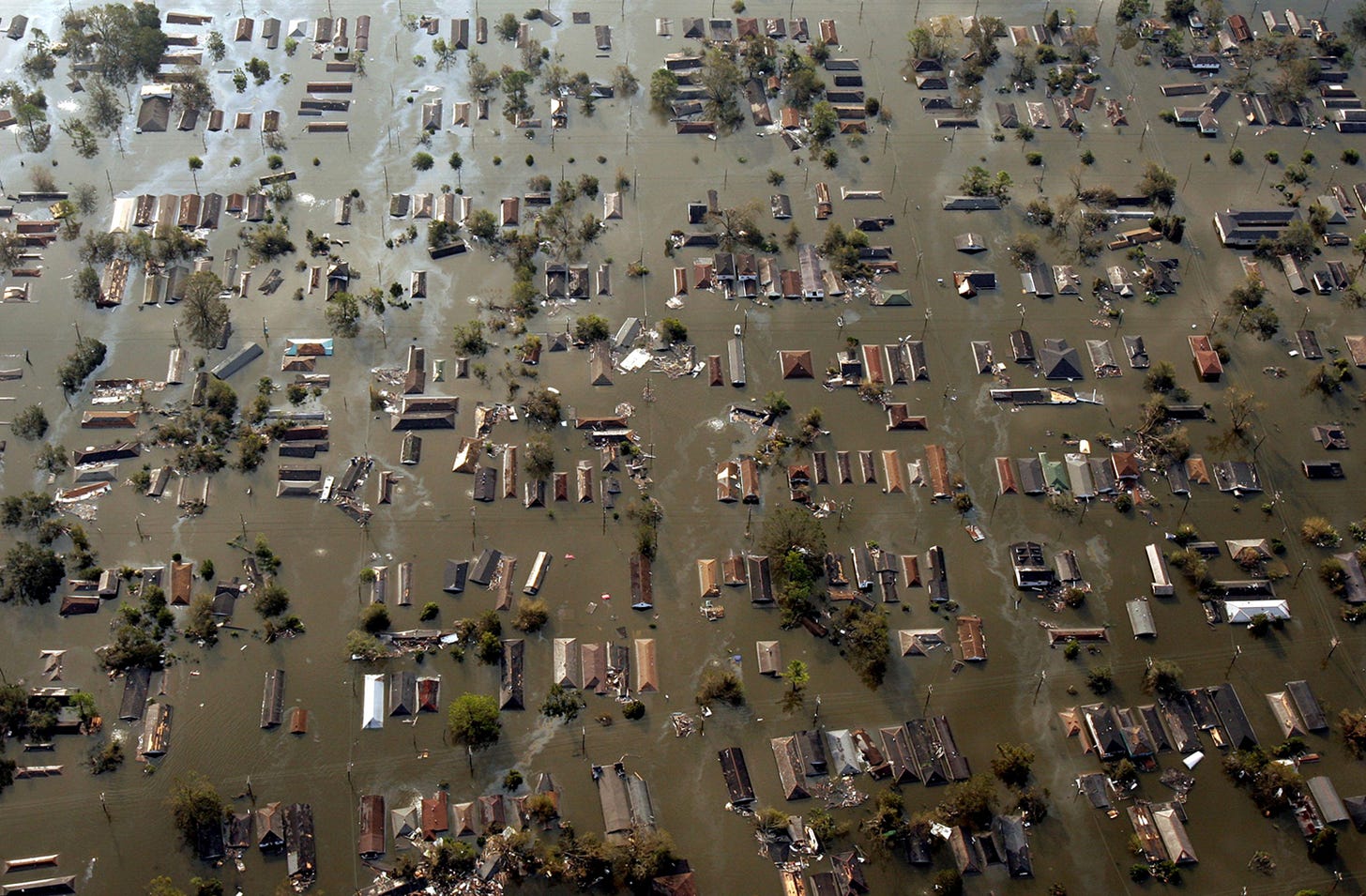
In the early morning hours of August 29, 2005, a category five hurricane named Katrina made landfall on the US Gulf Coast.
In the days following, 1836 people were killed, over one million people were displaced, and almost $150 billion of property was destroyed, mostly due to historic flooding in New Orleans, Louisiana. The city was under water for a month. The floodwaters also destroyed most of New Orleans’ transportation and communication facilities, leaving tens of thousands of people unable to access food, shelter, or other basic necessities.
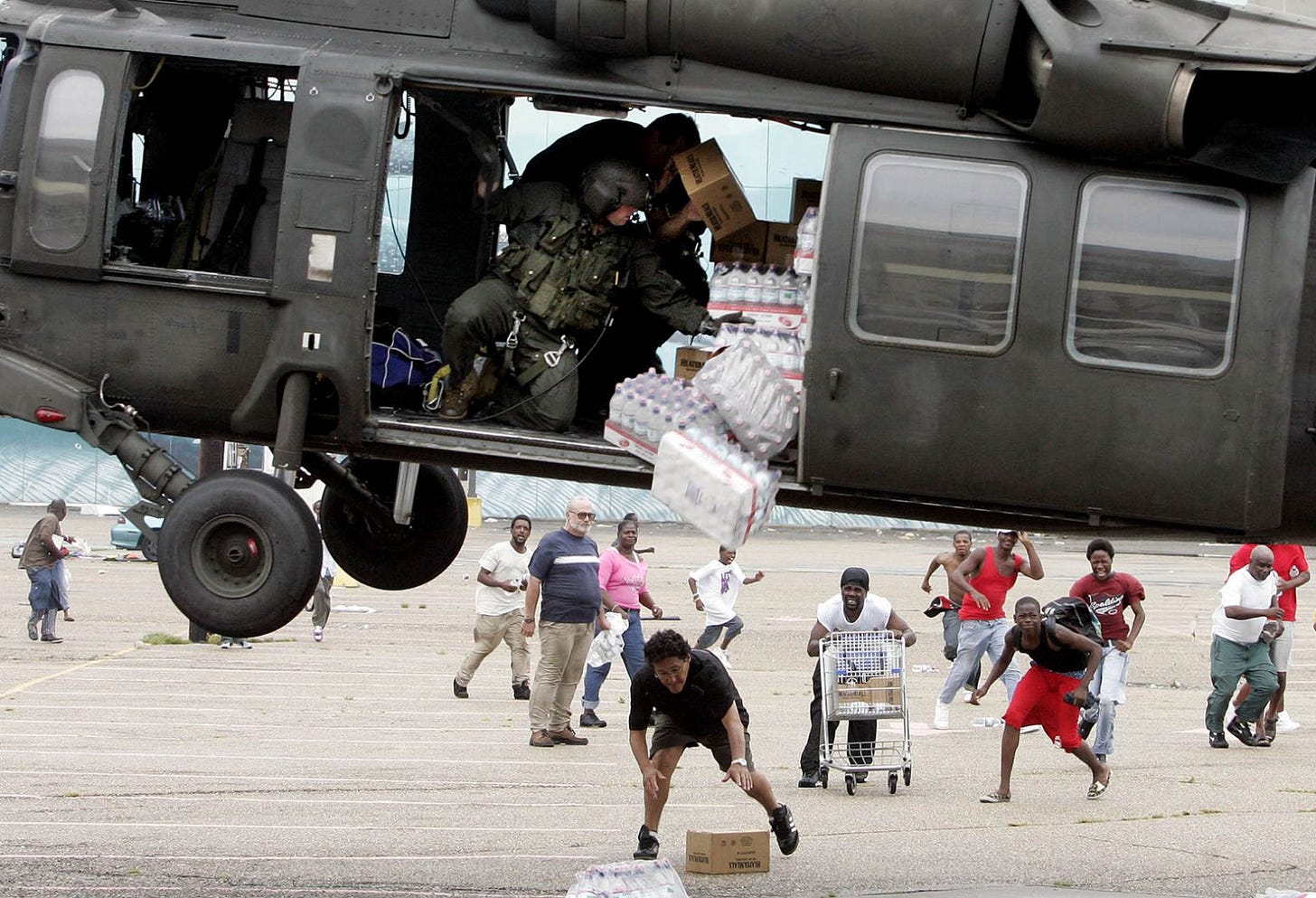
This is one of those events that most of us remember. I was in high school at the time and a number of Katrina refugees were resettled in the Austin area. One of them, a young man my age named Dominique, started attending my high school and joined our football team. Becoming friends with Dominique and hearing about his experiences during Katrina was a worldview altering experience for me, but I’ll come back to that story in a little bit.
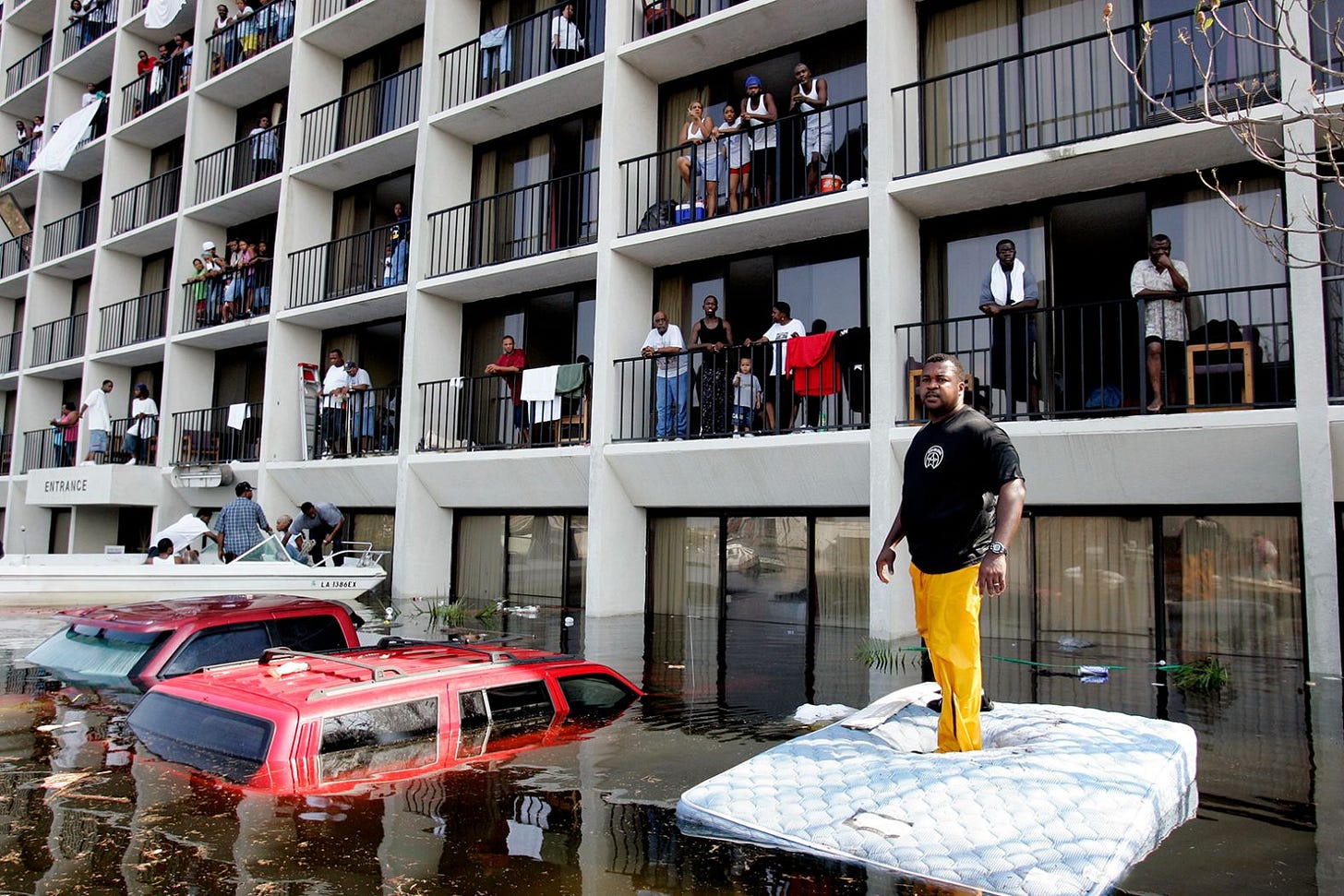
One of the things I remember most vividly from that time was the religious rhetoric attempting to explain Hurricane Katrina. Franklin Graham, a pastor and the son of the famous evangelist Billy Graham, claimed that the devastation caused by Katrina was God’s judgment.
This is one wicked city, okay? It's known for Mardi Gras, for Satan worship. It's known for sex perversion. It's known for every type of drugs and alcohol and the orgies and all of these things that go on down there in New Orleans. There's been a black spiritual cloud over New Orleans for years.
Franklin Graham
Around that same time, Louis Farrakhan, who leads the Nation of Islam, said something similar.
New Orleans is the first of the cities going to tumble down… unless America changes its course. It is the wickedness of the people of America and the government of America that is bringing the wrath of God down.
Louis Farrakhan
Even the Mayor of New Orleans, a man named Ray Nagin, invoked God when trying to explain what happened in his city.
Surely God is mad at America. He sent us hurricane after hurricane after hurricane, and it's destroyed and put stress on this country. Surely he doesn't approve of us being in Iraq under false pretenses. But surely he is upset at black America also.
Ray Nagin
I could go on and on. Leaders from virtually every religion had interpretations of God’s involvement with the hurricane, but Katrina is far from the first time this has happened.
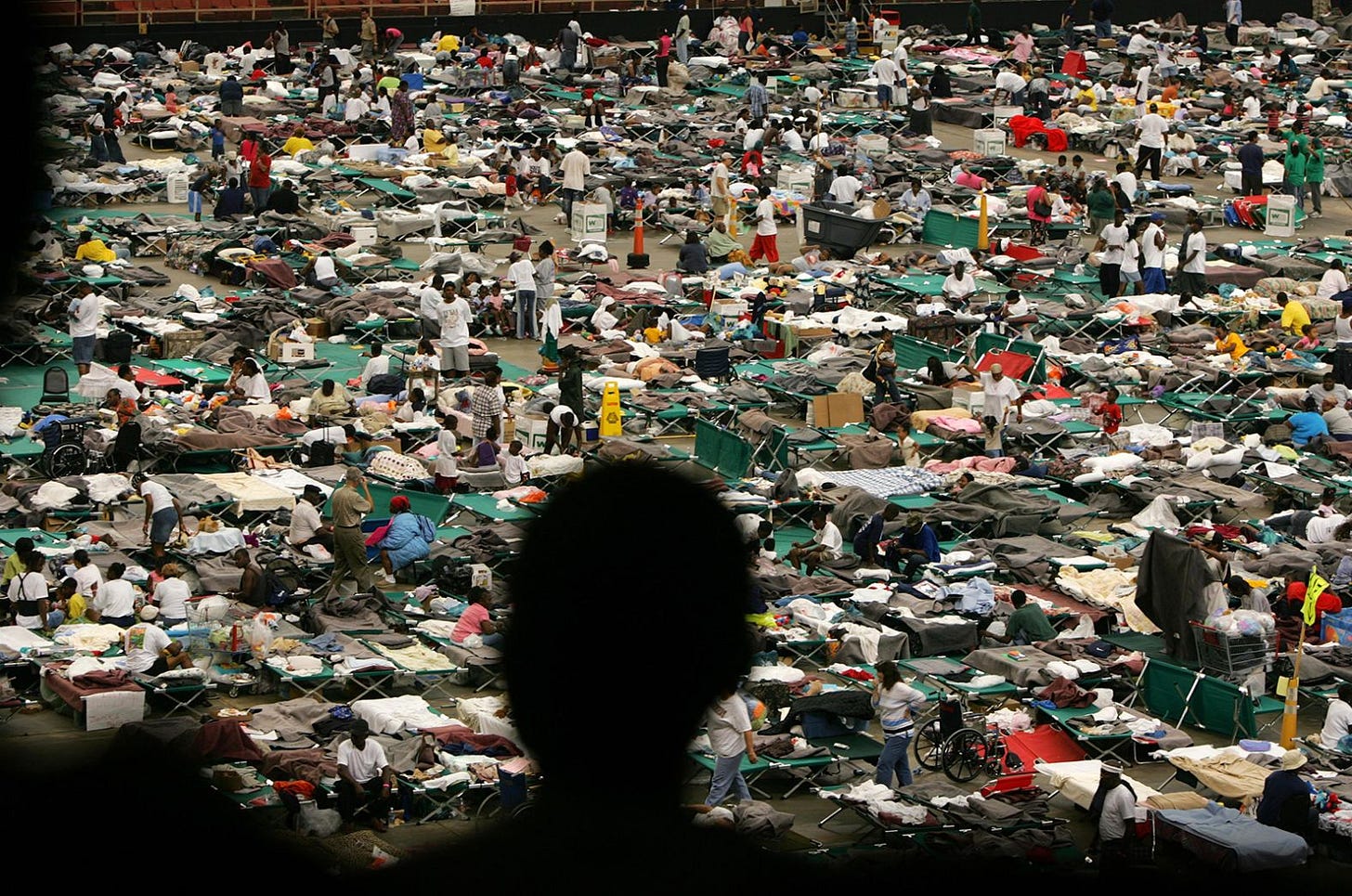
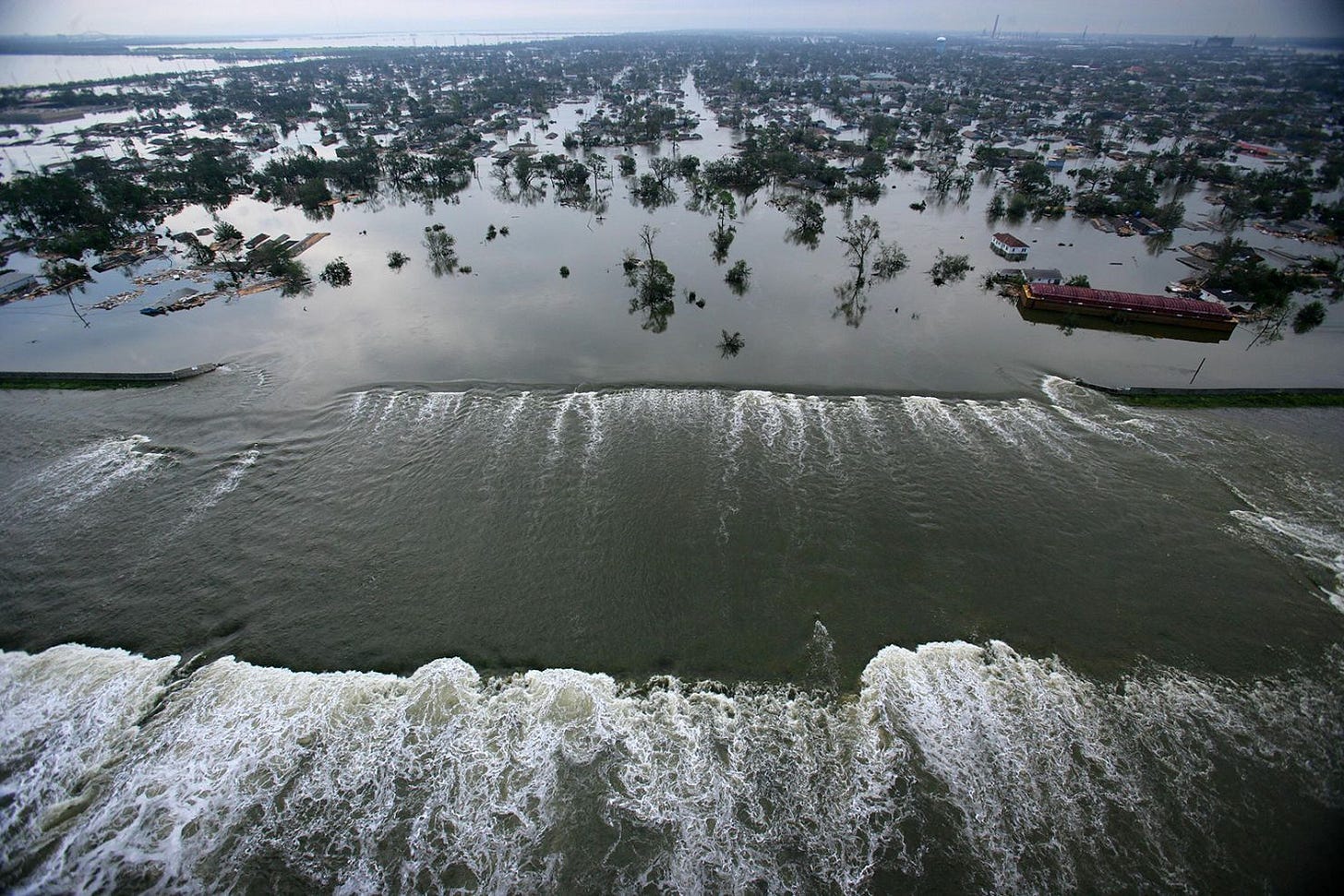
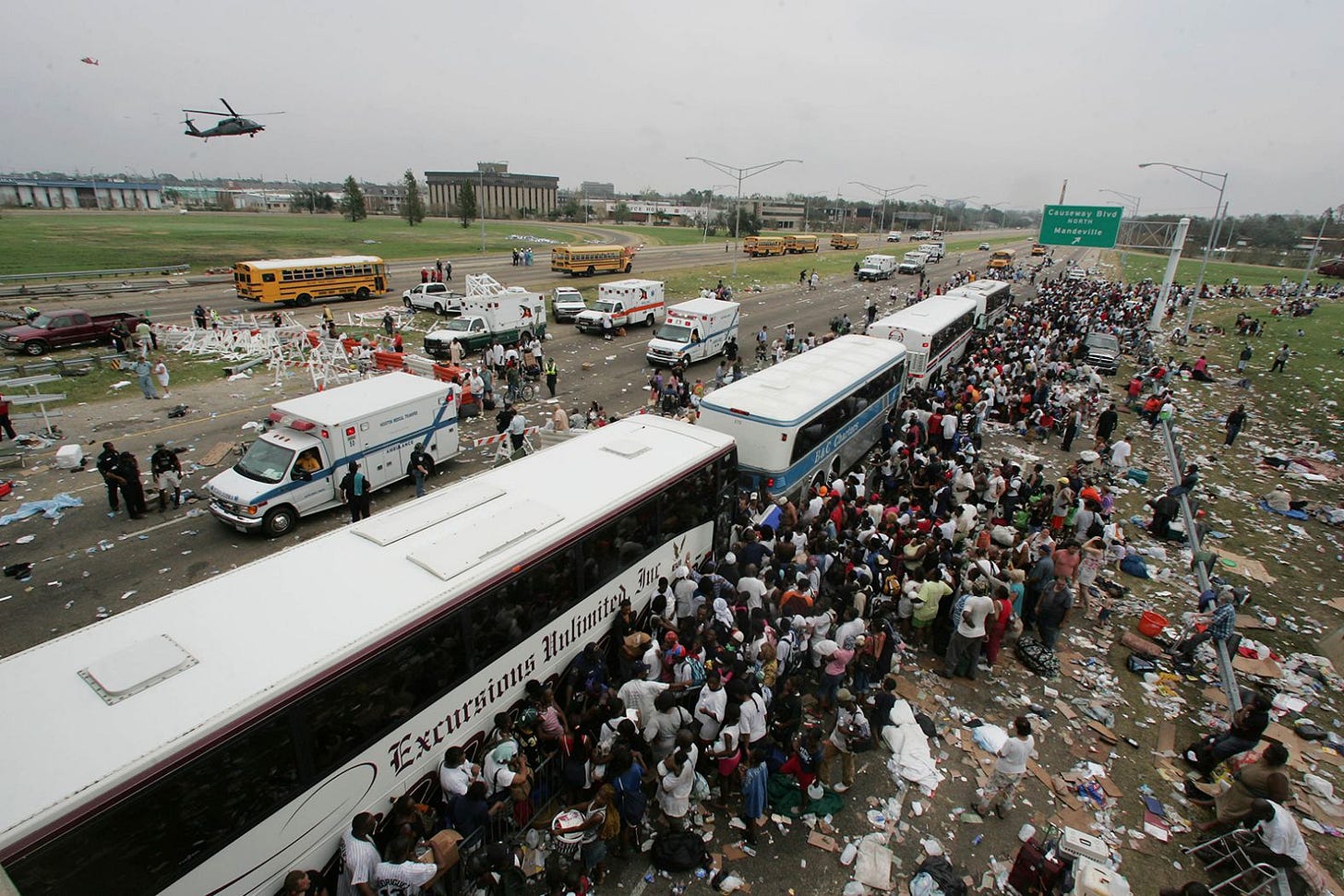
Since the beginning of time, people have been trying to make sense of natural disasters and human suffering. This is especially true for people of faith who attempt to reconcile their understanding of God with their life experiences. I would bet that most of us have asked some version of the question, “Where is God in this?” when faced with difficult circumstances.
We see this vividly in the story of Noah and the Great Flood in Genesis 6-9. This story has transcended Christianity to become a part of mainstream culture. I’ve encountered more Noah’s Ark Preschools than I can count and have had more than one non-Christian friend decorate their baby’s nursery in a two-by-two animal theme. I’ve chosen to hold my tongue about what happened to the animals who didn’t make it onto the ark since it’s a pretty dark theme for our youngest children’s surroundings.
But what is this wildly popular story actually about and what can we learn from it to apply to our lives today? So many of these stories and the concepts found within them have been weaponized in ways that have not only really hurt people, but even driven many folks away from the church and Christianity altogether. Noah and the Great Flood is one such story.
Keep reading with a 7-day free trial
Subscribe to Public Theology with Zach W. Lambert to keep reading this post and get 7 days of free access to the full post archives.



